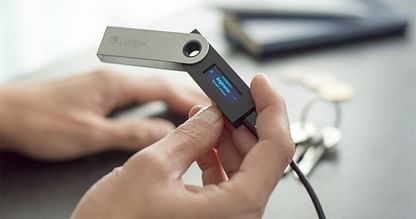As Bitcoin adoption continues to grow, the question of security becomes more important than ever. One of the most reliable methods of safeguarding digital assets is through cold wallets. But what exactly are they, and how do they protect Bitcoin investors from hacks, scams, and theft? Let’s break it down in simple terms.
What Is a Cold Wallet?
A cold wallet is a type of cryptocurrency wallet that is not connected to the internet. Unlike hot wallets (mobile apps, exchange wallets, or browser-based wallets), cold wallets are offline devices or storage methods. They come in forms like hardware wallets, paper wallets, or even air-gapped computers.
Why Are Cold Wallets Safer?
The primary reason cold wallets are safer is isolation. Since they are not online, they are immune to common cyberattacks such as phishing, malware, or exchange hacks. Even if a hacker gains control of your computer, your private keys inside a cold wallet remain out of reach.
Key Benefits of Cold Wallets for Bitcoin Investors
Offline Security
Private keys never touch the internet, reducing exposure to hacks.
Long-Term Storage
Ideal for investors holding Bitcoin for years without frequent transactions.
Protection Against Exchange Failures
If an exchange is hacked or goes bankrupt, funds stored in a cold wallet remain unaffected.
User Control
Investors fully own and control their Bitcoin, without relying on third-party platforms.
Are There Any Downsides?
Yes, while cold wallets are secure, they require responsibility. Losing the device, recovery phrase, or paper wallet can mean losing access forever. That’s why it’s important to back up recovery phrases in a safe, offline location.
Final Thoughts
Cold wallets are like the digital equivalent of a high-security vault. For Bitcoin investors serious about protecting their wealth, moving funds into a cold wallet is one of the smartest decisions they can make. While convenience may suffer compared to hot wallets, the trade-off in security and peace of mind is worth it.

